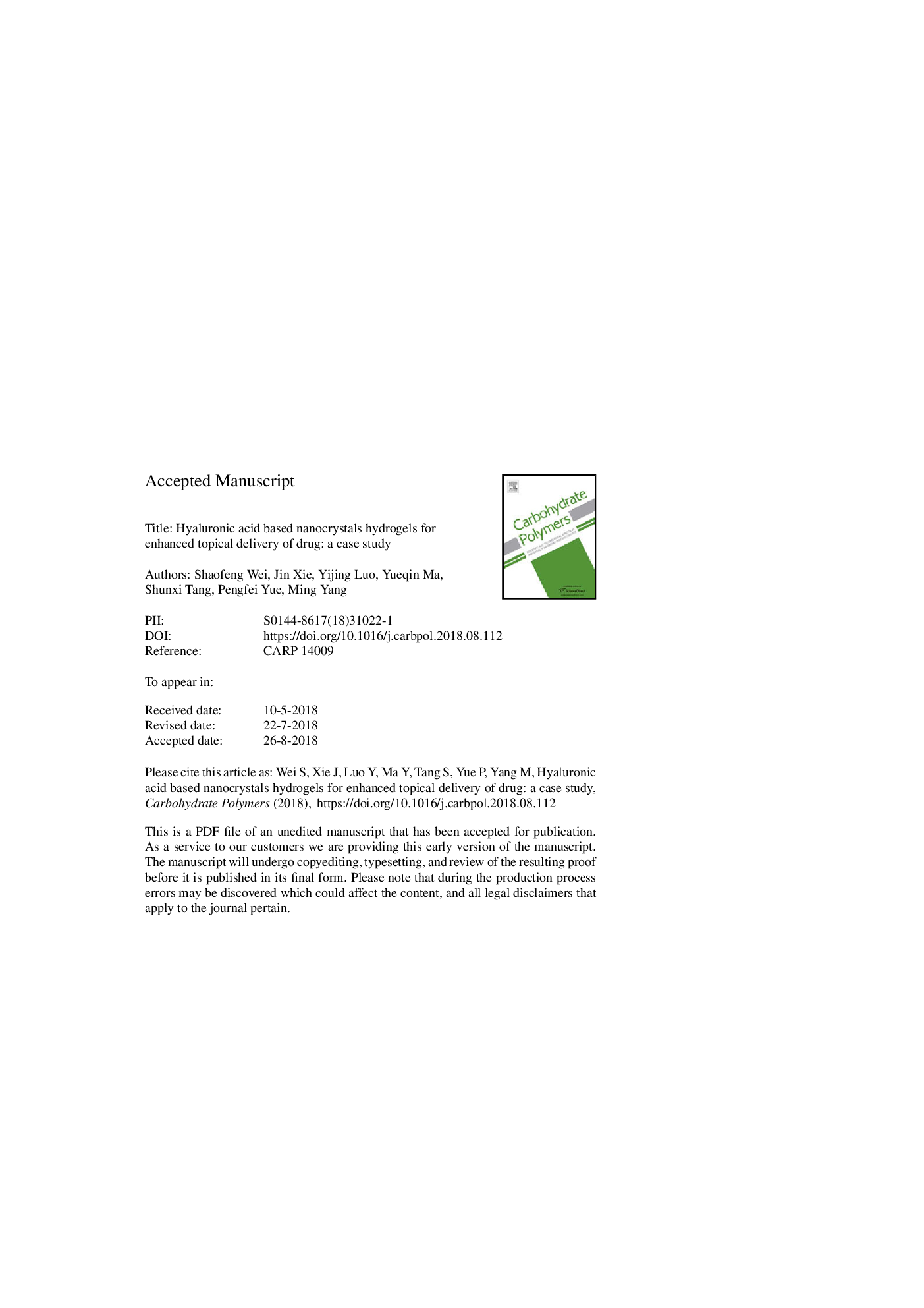| Article ID | Journal | Published Year | Pages | File Type |
|---|---|---|---|---|
| 10141210 | Carbohydrate Polymers | 2018 | 25 Pages |
Abstract
The objective of this study is to use a carbohydrate polymer hyaluronic acid (HLA) as matrix to design novel transdermal nanogel loading poorly soluble drug nanocrystals. Baicalin nanocrystals (BCA-NC) were prepared by coupling homogenization technology and spray-drying technology. The morphology, the rheological behavior and transdermal permeation studies of HLA based BCA-NC-gel were evaluated. The results demonstrated that the BCA-NC could be successfully prepared in terms of trehalose after spray-drying. The trehalose could prevent the aggregation of BCA-NC during spray-drying. It was discovered that, the BCA-NC-gel with 1% HLA possessed the favorable gelatin capacity and thinning shear rheological property. In vitro transdermal permeation studies of BCA-NC-gel/HLA studies indicated a marked increase in the skin permeation of BCA. And the transdermal flux of BCA-NC-gel with 1% HLA were 20.65-fold higher (pâ<â0.01) than that of coarse BCA-gel, which could be attributed to particles size reduction of BCA-NC and bioadhesive property of HLA. And the morphology characterization of BCA-NC-gel/HLA demonstrated that BCA-NC could be imprisoned into the gel network of HLA, which might prevent it from aggregation in gel. In conclusion, HLA based nanogel system is a promising carrier for effectively transdermal delivery of poorly soluble drug.
Related Topics
Physical Sciences and Engineering
Chemistry
Organic Chemistry
Authors
Shaofeng Wei, Jin Xie, Yijing Luo, Yueqin Ma, Shunxi Tang, Pengfei Yue, Ming Yang,
